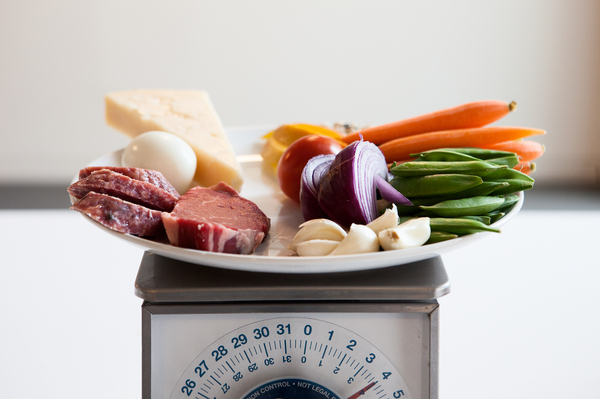Sizing down food waste: What's the worst thing to toss?
Go Deeper.
Create an account or log in to save stories.
Like this?
Thanks for liking this story! We have added it to a list of your favorite stories.

Sometimes I feel like a broken record at home: "Let's eat the leftovers for dinner, so they don't go to waste,"
But inevitably, Sunday night's pasta and meatballs get tossed out of the refrigerator to make way for Friday night's pizza.
Now scientists at the University of Minnesota offer up another reason to put those leftover meatballs in the tummy instead of the garbage: There are hidden calories in the beef that go to waste when you toss it.
These invisible calories could help out the 1 in 6 Americans who don't get enough to eat each day, just as easily as the meatballs themselves. And when you add them all up, these hidden calories are enough to help the world feed a rapidly rising population, ecologists report Thursday in the journal Science. About a third of all food grown around the world never gets eaten. Americans alone waste up to about 1,200 calories per person each day. But not all these calories are equal, when you look at how they hurt the global food supply, says ecologist Paul West, who led the study.
Turn Up Your Support
MPR News helps you turn down the noise and build shared understanding. Turn up your support for this public resource and keep trusted journalism accessible to all.
Discarding a pound of boneless beef effectively wastes 24 times more calories than discarding a pound of wheat, West and his team report. Why? Because the beef also contains all the calories in the corn that fed the cow.
"If you throw out some arugula at a fancy restaurant in upstate New York, it doesn't have much impact on the world's food system," West says. "But throwing out a small steak has a huge impact — maybe more than all the arugula in the restaurant put together."
Wasting other animal products, such as chicken, eggs and dairy, has less effect on the global food supply than beef, but still more than vegetables and grains, the study found. (Not too mention all the extra water, fertilizer and energy needed to raise animals for food.)
West and his colleagues have been searching for new ways to increase the world's food supply. "We have a huge challenge of feeding people now and in the future," he says. "The way we grow and consume our foods is unsustainable."
The team quickly zeroed in on curbing food waste as a top strategy. "At least in terms of calories per person, cutting food waste is more of an immediate opportunity to feed more people than increasing crop yields around the world," West says.
The U.S., China and India together throw out enough food each year to feed more than 400 million people, the team found. And the biggest contributor to that loss is beef discarded in U.S. Each day the average American throws out 290 effective calories from beef. We also waste about 550 calories from chicken, pork and grains.
On the flip side, India wastes the least amount of food and meat of the three countries. Each Indian, on average, effectively tosses out about 44 calories a day, mostly rice and wheat.
China fell between the U.S. and India. Each Chinese person wastes about 280 calories of wheat and rice every day. But the Chinese also love pork. And each person effectively tosses 200 calories from pork each day.
"The food service industry in China also has really high amounts of waste," West says. "It's a cultural standard, when you're having an event, to honor all the people that come with a seven- to nine-course buffet. All that food doesn't get eaten."
Which reminds me: I've got some leftover broccoli with beef in the refrigerator that I am definitely eating tonight. Copyright 2019 NPR. To see more, visit https://www.npr.org.


